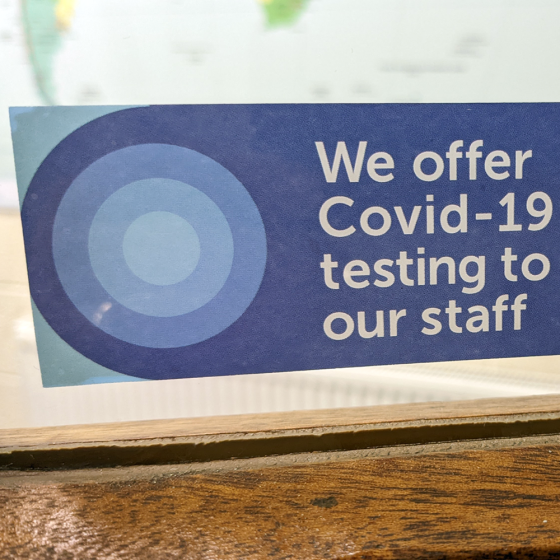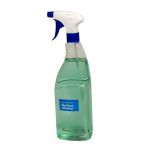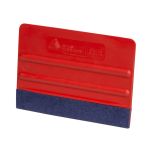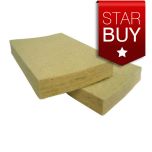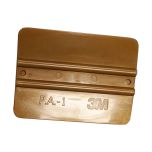Ri-Jet M150 Static Self Cling


Central UK Location
Daily deliveries throughout
the UK and Europe
Ri-Jet M150 Static series is a highly plasticized vinyl film cling by itself to glass, or any other smooth surface.
This 150μm monomeric vinyl has an external colour stability up to 6 months, printable by solvent, eco-solvent, and UV inks. The 200 g/m² liner or ensures good planarity and printing results.
REACH & RoHS compliant.
Available as white and clear gloss options.
Roll width: 1400mm
Ri-Jet M150 Static series is a highly plasticized vinyl film cling by itself to glass, or any other smooth surface.
This 150μm monomeric vinyl has an external colour stability up to 6 months, printable by solvent, eco-solvent, and UV inks. The 200 g/m² liner or ensures good planarity and printing results.
REACH & RoHS compliant.
Typical use:
Short term window graphics
Construction:
• Face film: 150 μm calendered highly plasticized vinyl film
• Adhesive: none
• Release liner: board paper 200 g/m2
Suitable inks:
Inkjet printable with solvent, eco-solvent and UV curable inks.
Screen printable with solvent and UV curable inks.
To achieve the best possible print quality, make sure that the correct ICC profiles or printer settings are used.
Expected durability:
The expected vertical outdoor durability in Central Europe (zone 1) is 6 months.
This information is based on real file experience and artificial aging according to ISO 4892-2.
Note: Exposure to severe temperature and ultra-violet light will cause a quicker deterioration. This applies also to polluted area, high altitude, horizontal applications, and
south-facing exposure in north hemisphere.
Within these Ritrama Digital Media printing guidelines, we cover proper media handling, printing setup, and finishing processes that will help to achieve optimal print quality and performance. These guidelines cover aspects like media profiles, drying times, application techniques, and troubleshooting.
1. Print Preparation:
Media Profiles:
Ensure the correct media profile is installed and selected in your print server. This profile contains information about the printer, RIP, ink, and the specific Ritrama media being used.
Drying:
For solvent printing, films need to be fully dried before applying overlaminates. A 24-hour drying time is generally sufficient for full solvent inks, while 48 hours is recommended for eco-/mild solvent inks. Allow for longer drying if a lot of ink is deposited.
Winding:
When drying, avoid tightly winding the material on a core, as this can hinder solvent evaporation. Loosely wound or stacked sheets are preferred.
2. Printing:
Resolution: For sharp, clear images, a resolution of 300 dpi is recommended.
Colour Matching: Digital printing may have limitations in achieving precise Pantone or specific colour shades.
3. Finishing:
Overlaminates:
If applying overlaminates, ensure the printed material is thoroughly dry to prevent potential issues.
Cutting:
For cutting, ensure the blade is clean and sharp.
Stabilisation:
After curing, allow 4-8 hours for the ink and substrate to stabilize before die-cutting, pre-masking, or chemical resistance testing.
4. Application:
Surface Preparation: Clean the substrate thoroughly before applying the media.
Application Tools: Use a squeegee with overlapping strokes, applying moderate pressure.
Temperature: Avoid applying films in extreme temperatures. If necessary, use a heat gun to gently warm the material during application.
Troubleshooting: If bubbles or wrinkles occur, try using a heat gun to help eliminate them. It may be possible to reposition some products, or push air bubbles out towards the edge of the media.
5. Cleaning and Maintenance:
Cleaning:
Use a gentle cleaning solution (water with a small amount of soap) and a soft cloth. Avoid using harsh chemicals or abrasive materials.
Pressure Washing:
Use pressure washing with caution, keeping pressure below 1200 psi and water temperature below 120° F.
6. Additional Tips:
Testing:
Thoroughly test all performance characteristics, including print quality, durability, and chemical resistance, before each production run.
 Star buys on selected products
Star buys on selected products Read our latest reviews
Read our latest reviews